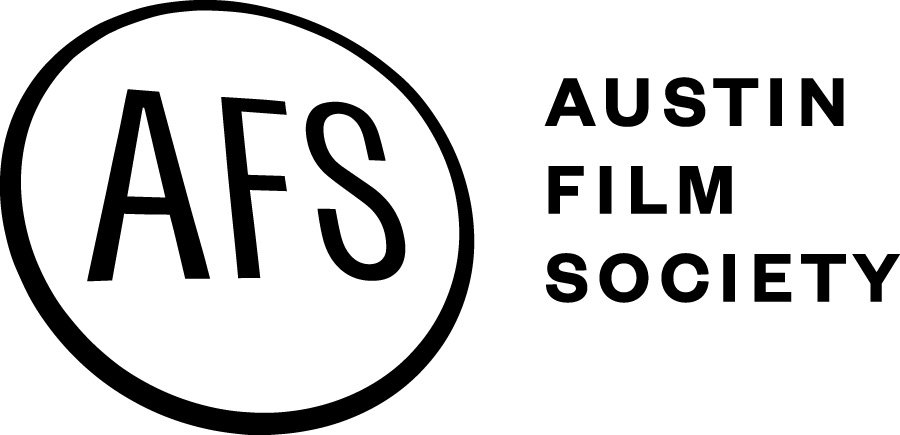The Fusion of Two Worlds
/Conversation with Iwona Siekierzyńska, screenwriter and director of The Amateurs
(Translated by Bożena U. Zaremba)
Joanna Sokołowska-Gwizdka: The Amateurs is a feature film based on a true story about the theater called Biuro Rzeczy Osobistych (BRO—“Bureau of Personal Belongings”). This theater has been active in the Tri-City [of Gdańsk-Gdynia-Sopot, Poland] since 1998 and engages actors with intellectual disabilities, such as Down syndrome. That is a very difficult and risky subject for a movie as disabled actors on the screen may evoke pity and sympathy in the audience. However, in your film, you show admiration for the actors’ hard work, efforts, and involvement. There is a lot of empathy and understanding; the film makes the audience more sensitive to the world far from their own.
Iwona Siekierzyńska: Thank you for mentioning pity, which can easily sneak into the conversation about this subject. When I started working on the film, I felt the weight of responsibility; I knew it had to be good, that acting had to be good. If not, people would say, oh well, the actors are disabled, so we have to forgive them. It was essential to me to avoid any form of patronizing. I didn’t want people who came to see the film to feel emotionally blackmailed. I am glad I succeeded.
JSG: In 2005, you made a documentary film Obcey* about this theater. You accompanied the actors during their rehearsals and at their homes. Why did you decide to return to the subject after so many years?
IS: This was definitely sparked by the offer from Zbigniew Biegajło, director of the theater group, who asked me to create a theater show, which could be presented to the outside world. Before, disabled artists performed only for themselves and their community and families. Their life was isolated from the external world. Besides, it was only a movement theater. At some point, Zbigniew Biegajło decided they should introduce the spoken word.
In 2015, in the Tri-City, I directed a play, Moja sprawa (“My business”) by Radosław Paczocha about disabled people and their role in the life of a community. The cast comprised professional and BRO actors. I felt emboldened to face another challenge on a similar topic. At that time, a professional theater contacted me with an offer to stage a Shakespeare play. It turned out they had received ministerial funding to promote Shakespeare and people with disabilities. When they were submitting the proposal, they did not have a particular theater group in mind, but including the subject of disabled people simply increased their chance to get the grant. Then, they frantically searched for the appropriate theater. We declined because we were busy with the Moja sprawa project, but, at that time, I thought that the whole situation would be an excellent idea for a feature film.
JSG: The film shows the struggles with staging a Shakespeare play, which is supposed to be shown in a Shakespeare Theater in Gdańsk. Is Krzysiek (the character played by Wojciech Solarz), who is working with the BRO actors on the play, somehow modeled on you?
IS: Certainly, there is a lot of me in Krzysiek, but while creating this character, Zbyszek Biegajło, the director of the theater, was my inspiration. He was so supportive during the making of this film and made sure that “his people” (that’s what he calls his actors) would feel safe while working under the huge stress of film production.
JSG: The role of Krzysiek’s mother is beautiful, warm, and honest. One of her children is disabled, but she loves them equally. Sometimes, she is tense and angry, but this is normal – she is not a machine. From time to time, the everyday obstacles are more than she can bear. Was casting Anna Dymna in this role connected to her work for the “Mimo Wszystko” (“Against the Odds”) Foundation?
IS: In the beginning, I invited Dorota Kolak to play the mother, and she accepted the part. However, the filming date was postponed, and one day, at the eleventh hour, if you will, I had an illumination that Anna Dymna would suit this role better. She is an extremely busy actress and did not accept the offer with enthusiasm. She said that for such a film, you need to have money. Of course, she was talking about the comfort of making a movie. We did not have it. It took some time for her to accept the part, and she created a wonderful character.
JSG: People who are intellectually handicapped have a lot of impairments, their speech is blurred, they have problems with concentration, and they are very emotional. Please tell us about the challenges of working with such people.
IS: There were good and bad moments on the set, with all actors, not just the disabled ones. Their disability had nothing to do with it – all of them played sometimes well, sometimes badly. There was one excellent disabled actress; when we had to reshoot some scenes, it was not because of her but because of a professional actor.
JSG: You are talking about Mary, played by Marzena Gajewska, right?
IS: True. She has an excellent memory and acting skills. She received the Best Actress award at the Shanghai International Film Festival, which proves her talent.
JSG: You beautifully showed in the film that these people are incredibly sincere. While living in our society, which has shaped us, we put on various masks. It does not surprise us. We are taught from our childhood what is appropriate, what is not; we memorize specific codes of behavior. People with intellectual disabilities do not wear any masks; they are authentic and emotional. When they want something, they say it; when they are angry, they say it. Everything is written all over their faces. As shown in the film, the Shakespearian performance in the finale was based on natural sincerity, not on the text.
IS: It was our concept that the show would be based on sincerity and emotions, not on dialogue, even though, as I said before, Marzena has a phenomenal memory and could manage the whole Shakespearean play. Of course, we prepared the play earlier; it was not being created on the set, and only part of it was included in the film.
JSG: The film is self-reflective – it talks about the creative process and the production of the Shakespearean play.
IS: The most important for us were the message and the energy that these actors release. They mix up their lines or forget them, but this is very creative. The film was made to show that disabled actors are artists who can deeply penetrate the creative process. Nobody expects them to play such a role because people conform to this stereotype that these people are only destined for a hard life. Certainly, nobody expects them to be artistic and create art on a very high level.
JSG: The movie also shows a difficult collaboration between the disabled and professional actors. At one time, Ms. Olbińska, a professional actress (played by Małgorzata Zajączkowska), asks about what she is supposed to play here and what her objectives are. Professional actors, who are used to a particular order and to being at least familiar with the play’s structure, can get lost in this unpredictable environment.
IS: Exactly. For the professional actors, this was a challenging task. I knew the disabled actors very well and knew their strengths; they trusted me. We need to remember that—because of deep psychological processes—the disabled actors always blame themselves when something goes wrong. It is definitely connected with their low self-esteem. They think they need to apologize for being alive. And all of a sudden, they are cast in a movie. They must have felt this was their last chance to show their potential and talent to the world. When we had to reshoot, they took the whole blame. I was hoping that because of the construction of having a play within a movie, even if there were going to be some clumsiness or artificiality, everything would eventually blend in well. Still, combining these two actors’ worlds was not an easy task. The art of editing often came to the rescue. I dream of telling more stories about what was going on between the professional and disabled worlds. Maybe, someday, such a film will be made.
JSG: There is this incredible scene in the movie at the Musical Theater in Gdynia during an opening night of a movie with a film star Kika (played by Roma Gąsiorowska): the top cast actors are perversely played by the disabled people and the extras—by [world-renowned Polish director] Agnieszka Holland and [popular actress] Małgorzata Kożuchowska.
IS: In this film, the roles have reversed. The job of the professional actors was to give the disabled actors a chance to play the first fiddle. If they had also played the supporting role, it could have made a good film. However, from the very beginning, I wanted to give them a commanding part.
JSG: This aspect is critical in the integration of different communities. In the West, schools have integrated abled and disabled students for quite some time. The disabled do not feel excluded, and the abled learn empathy and acceptance of the “other.” The BRO theater also takes part in projects to open the closed world of the disabled. “Bez maski” (“Without a Mask”) project connects the disabled people with schools, and the “Człowiek człowiekowi” (“Human to Human”) project is an artistic experiment, which connects the BRO actors with the professionals. Are there many theaters such as BRO in Poland?
IS: Yes, we have a few fantastic theaters with intellectually handicapped actors. However, the communities of the abled and disabled actors do not intermingle; they exist in two parallel worlds. The movie The Amateurs has a provocative and educational role to play—so that we can finally get together and so that we can attend the same film festivals. Only a meeting can change people, and when people change, the whole world changes, too.
*The title “Obcey” is a wordplay on the Polish term “obcy” for “the other” or “foreign.”
Translated by Bożena U. Zaremba












